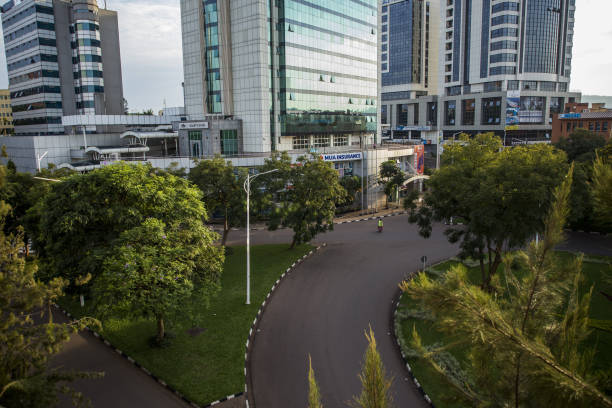INVESTMENT OPPORTUNITIES IN RWANDA
There are a number of industries with investment opportunities, and open to investment proposals. To discuss opportunities regarding investment in Rwanda, please contact +250 727775170 or send an email to investorfeedback@rdb.rw.

INFRASTRUCTURE
Rwanda is committed to infrastructure development, dedicating almost a tenth of the annual budget to transport and other aspects of infrastructure. The level of urban settlement in Rwanda is increasing, with existing cities growing, and secondary cities being developed.
Opportunities in infrastructure are varied and include, (but are not limited to):
- Improvements to road infrastructure in both urban and rural areas
- A new international airport at Bugesera
- Two major railway lines
- Increased transport capacity over water
- New and improved public transport systems
AGRICULTURE
Agriculture in Rwanda accounts for a third of Rwanda’s GDP; and approximately half of the countries export revenues. Major cash crops in Rwanda are coffee and tea – however, there has been a push to diversify to produce a number of non-traditional crops.
Opportunities in Agriculture include (but are not limited to):
- Improvements to a range of horticultural processes and equipment
- Maize and wheat production and processing
- Fishery and animal feed production
- Dairy Processing
- Silk Development
- Sugar Cane Production and Processing
- Processing and Value Addition


ENERGY
Requirements for energy in Rwanda are increasing due to infrastructure upgrades that are delivering more power to more people. Current targets are to have 70% of people and 100% of institutions connected to the electricity grid by 2017.
Opportunities to invest in Energy include:
- Methane gas to power
- Geothermal
- Peat to Power
- Hydropower
- Off-Grid solutions
TOURISM
Tourism is a fast growing sector and a major source of income from external countries for Rwanda. Rwanda offers tourists a one of a kind journey home to one third of the world’s remaining Mountain Gorillas, one third of Africa’s bird species, several species of primates, volcanoes, game reserves, resorts and islands on the expansive Lake Kivu, graceful dancers, artistic crafts and friendly people.
Opportunities to invest in Tourism include:
- Golf Courses
- Multiple Hotels and Lodgings
- Hot Springs
- Sun Beach
- Cable Car Project
- Adventure Tourism


ICT
Information and Communication Technology is a central engine to driving Rwanda’s transformation to a knowledge based economy, a fact Rwanda has acknowledged by allocating a budget to ICT – as a percentage of its GDP – that is at par with OECD countries.
The key ICT project is an ICT Park supporting the growth of:
- Energy
- Internet and Mobile communications
- Knowledge (working with local Universities)
- E-government
- Financial
- ICT services
MINING
Mining sector contributes substantially to the exports from Rwanda. It is considered the second foreign export earner after tourism. It has been growing at a rate of at least 10% every year since 1999. The major minerals exported from Rwanda are metal stones (casseterite, coltan and wolframite).
The mining investment projects in Rwanda include:
- Mineral exploration and trade in mineral substances
- Mining opportunities in Tin, Tungsten, Coltan and Gemstones
- Improvements in current mining operations and equipment


FINANCIAL SERVICES
As Rwanda develops increasing levels of financial services are required. Currently, there are 9 commercial banks, 3 microfinance banks, 1 development bank, and 1 cooperative bank.
Investment opportunities in financial services:
- Commercial bank products and services in rural areas.
- Agricultural products and services financing.
- Development banks with a focus on SMEs
- Micro-financing
- Insurance services
- Training financial sector professionals
REAL ESTATE
Construction and real estate sectors are key sectors and potential drivers of future economic growth in Rwanda. Growth in demand for houses has been driven by among other factors, a growing population, an emerging and growing middle class, increased diaspora investment in Rwandan property markets and government investment in infrastructure expansion and modernization of urban and rural infrastructure.
Opportunities for investment in real estate include:
- Residential housing
- Sports Center
- Office Buildings
- Factory Construction
- Entertainment Centers


MANUFACTURING
The Rwanda industrial policy aims at increasing domestic production, improving export competitiveness and creating an enabling environment for industrialisation. The manufacturing sector is currently dominated by construction materials manufacturing and agro-processing subsectors, mainly due to local availability of raw materials and the booming construction sector.
There are manufacturing investment opportunities for the following materials and products:
- Construction materials
- Pharmaceutical drugs
- Textiles
- Leather processing
- Soaps and detergents
- Fertilisers
